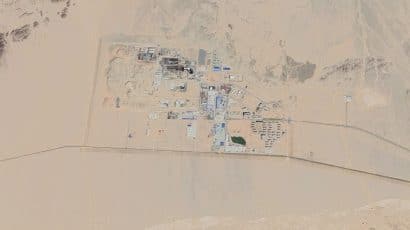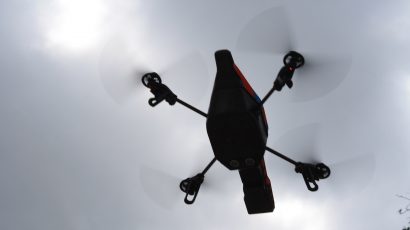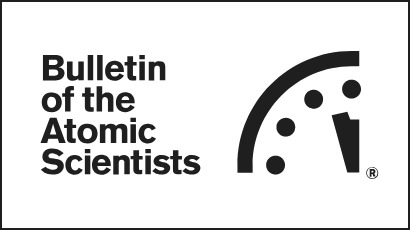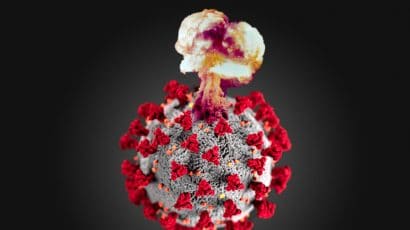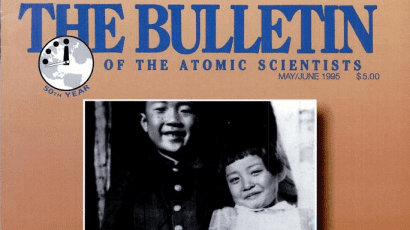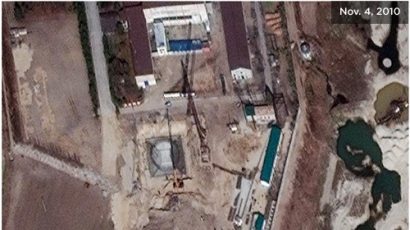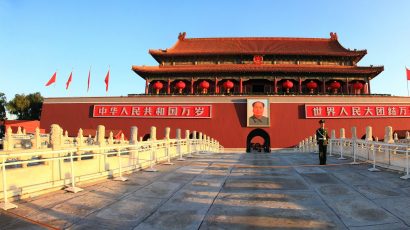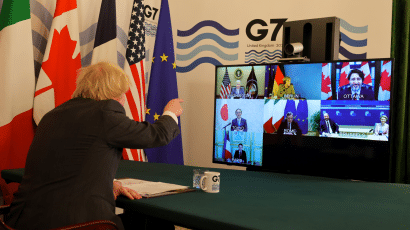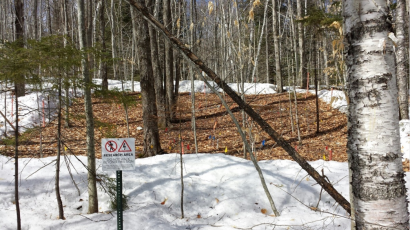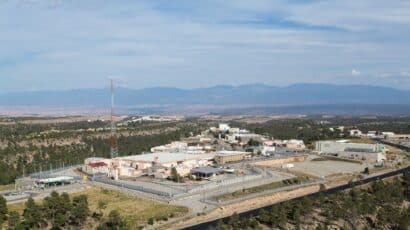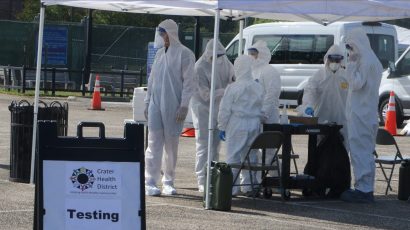Search results for
Pinpointing China’s new plutonium reprocessing plant
In 2015, China began construction on a new plutonium reprocessing facility. Until now, it’s exact location had not been publicly identified.
Tech workers revolt
Employees of Google, Microsoft, Amazon, and other tech companies are getting vocal about not wanting their work weaponized.
How to respond to science-denial trolls
The subject of climate change always attracts online attacks. Here are a few ways to keep online discussion safe and civil.
No, we don’t need a “Manhattan Project” to fight the coronavirus pandemic
Comparing today’s coronavirus response with a 75-year-old secret government project probably won’t be a call to action for young people.
How to make AI less racist
A prominent dataset of images that researchers used to train artificial intelligence (AI) algorithms to recognize objects was taken down after a scholarly paper revealed that some of the categories it contained were labeled with offensive terms for women and minorities. The story highlights how bias can creep into the AI development cycle at various points.
Hiroshima and Nagasaki: The many retrospectives
A look at the many attempts, past and present, to put the atomic bombings into perspective
US-China rivalry: When great power competition endangers global science
Science won’t be able to solve global issues without US-China scientific collaboration.
Will AI make us crazy?
Coverage of the risks and benefits of AI have paid scant attention to how chatbots might affect public health at a time when depression, suicide, anxiety, and mental illness are epidemic in the United States. But mental health experts and the healthcare industry view AI mostly as a promising tool, rather than a potential threat to mental health.
North Korea from 30,000 feet
The first publicly available overhead imagery that suggested North Korea was constructing a new nuclear reactor at its Yongbyon complex appeared on November 4, 2010. Charles L. Pritchard, a former special envoy for negotiations with North Korea and the president of the Korea Economic Institute, along with a delegation from the institute provided the first confirmation of this construction after a visit to Yongbyon that week.
Censorship 101: China’s young censors first have to learn about forbidden topics
Li Chengzhi, a young college graduate in Chengdu, China, shows up to each of his work shifts at a bright new office in “the heart of a high-tech” part of town. But Li’s job isn’t to harness the power of new technology to change the world–it’s to maintain the status quo. Li is one of … Continued
How to trash confidence in a COVID-19 vaccine: Brexit edition
Brexit politics, tabloids, corporate dissembling—and French President Emmanuel Macron—almost tanked confidence in a COVID-19 vaccine.
Shorter, warmer winters, less snow. What next? Q&A with biologist Pamela Templer
Decades of data collected at the nation’s experimental forests show that the winters are getting shorter and warmer, meaning that there will be less snow to protect the microfauna and microflora below. To find out what this could mean for New England’s forests, biologist Pamela Templer of Boston University and her team have been conducting experiments to see what climate change has in store for the future of the forest floor.
Follow the Bulletin on your news app
Find us in your news app! Want to easily read, like, and share Bulletin content via email or social media? You can follow us on Apple News, Google News, and now on the popular Flipboard app to stay in the know. In 2009, the Bulletin of the Atomic Scientists became one of the first major print publications to go all-digital; in 2018, we … Continued
Approaching Y2Q and barely a peep (or tweet) from the government
Every time you exchange data online, whether you are purchasing an item with a credit card or providing personal information for an application, you enter a tacit agreement with the service provider about the protection of your information. However, you probably don’t think about what specific measures the provider will take to secure your data … Continued
Technology helped fake news. Now technology needs to stop it
Technology needs to partner with psychology to effectively counter the spread of misinformation.
Who’ll want artificially intelligent weapons? ISIS, democracies, or autocracies?
If you’re a dictator who can’t trust your own people in the military, you can still trust a machine to do your dirty work.
Dealing with a debacle: A better plan for US plutonium pit production
Given the serious cost, scheduling, and scientific questions about the US government's program for producing new plutonium cores (or pits) for nuclear warheads, the authors recommend the program be scaled back to manufacture 10 to 20 pits per year. Such a demonstration production line would establish the capacity to produce pits, if further research shows they are needed.
One year later, new dangers threaten Ukraine’s embattled Zaporizhzhia nuclear plant
Water reservoir levels have dropped around the Russian-occupied Zaporizhzhia nuclear plant, reinforcing the need for urgent action to ensure its safety.
Countries have more than 100 laws on the books to combat misinformation. How well do they work?
Since 2015, there has been a huge increase in laws that ostensibly seek to counter misinformation. Since the pandemic began, this trend has only accelerated.

